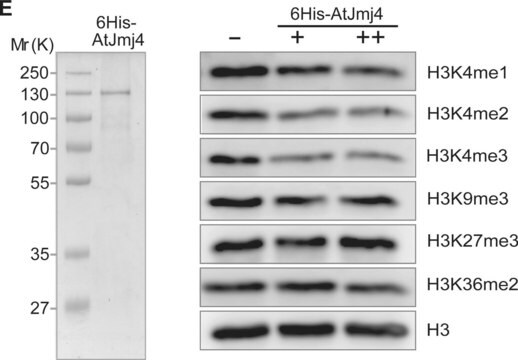157740
Iron(III) chloride
reagent grade, 97%
Synonyme(s) :
Ferric chloride, Iron trichloride, Molysite
About This Item
Produits recommandés
Qualité
reagent grade
Niveau de qualité
Densité de vapeur
5.61 (vs air)
Pression de vapeur
1 mmHg ( 194 °C)
Pureté
97%
Forme
powder
Caractéristiques du produit alternatif plus écologique
Catalysis
Learn more about the Principles of Green Chemistry.
sustainability
Greener Alternative Product
Pf
304 °C (lit.)
Autre catégorie plus écologique
Chaîne SMILES
Cl[Fe](Cl)Cl
InChI
1S/3ClH.Fe/h3*1H;/q;;;+3/p-3
Clé InChI
RBTARNINKXHZNM-UHFFFAOYSA-K
Vous recherchez des produits similaires ? Visite Guide de comparaison des produits
Catégories apparentées
Description générale
Application
Mention d'avertissement
Danger
Mentions de danger
Conseils de prudence
Classification des risques
Acute Tox. 4 Oral - Eye Dam. 1 - Met. Corr. 1 - Skin Irrit. 2
Code de la classe de stockage
8B - Non-combustible corrosive hazardous materials
Classe de danger pour l'eau (WGK)
WGK 1
Point d'éclair (°F)
Not applicable
Point d'éclair (°C)
Not applicable
Certificats d'analyse (COA)
Recherchez un Certificats d'analyse (COA) en saisissant le numéro de lot du produit. Les numéros de lot figurent sur l'étiquette du produit après les mots "Lot" ou "Batch".
Déjà en possession de ce produit ?
Retrouvez la documentation relative aux produits que vous avez récemment achetés dans la Bibliothèque de documents.
Les clients ont également consulté
Notre équipe de scientifiques dispose d'une expérience dans tous les secteurs de la recherche, notamment en sciences de la vie, science des matériaux, synthèse chimique, chromatographie, analyse et dans de nombreux autres domaines..
Contacter notre Service technique







